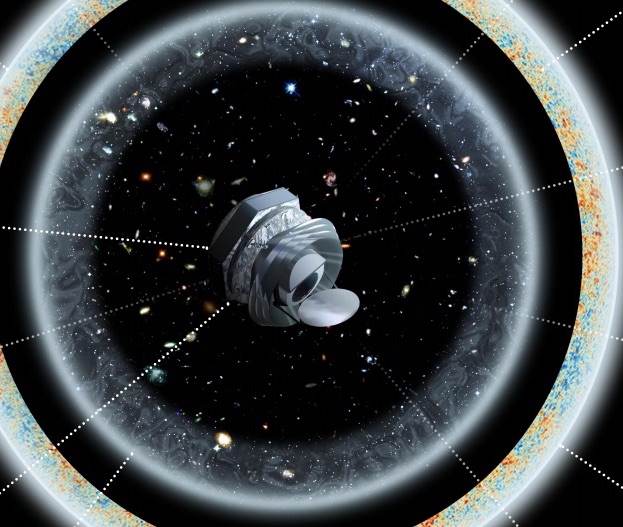The Probe of Inflation and Cosmic Origins (PICO) is an imaging polarimeter that will scan the sky for 5 years in 21 frequency bands spread between 21 and 799 GHz. It will produce full-sky surveys of intensity and polarization with a final combined-map noise level of 0.87 $\mu$K arcmin for the required specifications, equivalent to 3300 Planck missions, and with our current best-estimate would have a noise level of 0.61 $\mu$K arcmin (6400 Planck missions). PICO will either determine the energy scale of inflation by detecting the tensor to scalar ratio at a level $r=5\times 10^{-4}~(5\sigma)$, or will rule out with more than $5\sigma$ all inflation models for which the characteristic scale in the potential is the Planck scale. With LSST’s data it could rule out all models of slow-roll inflation. PICO will detect the sum of neutrino masses at $>4\sigma$, constrain the effective number of light particle species with $\Delta N_{\rm eff}<0.06~(2\sigma)$, and elucidate processes affecting the evolution of cosmic structures by measuring the optical depth to reionization with errors limited by cosmic variance and by constraining the evolution of the amplitude of linear fluctuations $\sigma_{8}(z)$ with sub-percent accuracy. Cross-correlating PICO’s map of the thermal Sunyaev-Zeldovich effect with LSST’s gold sample of galaxies will precisely trace the evolution of thermal pressure with $z$. PICO’s maps of the Milky Way will be used to determine the make up of galactic dust and the role of magnetic fields in star formation efficiency. With 21 full sky legacy maps in intensity and polarization, which cannot be obtained in any other way, the mission will enrich many areas of astrophysics. PICO is the only single-platform instrument with the combination of sensitivity, angular resolution, frequency bands, and control of systematic effects that can deliver this compelling, timely, and broad science.
Hanany, Shaul; Alvarez, Marcelo; Artis, Emmanuel; Ashton, Peter; Aumont, Jonathan; Aurlien, Ragnhild; Banerji, Ranajoy; Barreiro, R. Belen; Bartlett, James G.; Basak, Soumen; Battaglia, Nick; Bock, Jamie; Boddy, Kimberly K.; Bonato, Matteo; Borrill, Julian; Bouchet, François; Boulanger, François; Burkhart, Blakesley; Chluba, Jens; Chuss, David; Clark, Susan E.; Cooperrider, Joelle; Crill, Brendan P.; De Zotti, Gianfranco; Delabrouille, Jacques; Di Valentino, Eleonora; Didier, Joy; Doré, Olivier; Eriksen, Hans K.; Errard, Josquin; Essinger-Hileman, Tom; Feeney, Stephen; Filippini, Jeffrey; Fissel, Laura; Flauger, Raphael; Fuskeland, Unni; Gluscevic, Vera; Gorski, Krzysztof M.; Green, Dan; Hensley, Brandon; Herranz, Diego; Hill, J. Colin; Hivon, Eric; Hlozek, Renée; Hubmayr, Johannes; Johnson, Bradley R.; Jones, William; Jones, Terry; Knox, Lloyd; Kogut, Al; López-Caniego, Marcos; Lawrence, Charles; Lazarian, Alex; Li, Zack; Madhavacheril, Mathew; Melin, Jean-Baptiste; Meyers, Joel; Murray, Calum; Negrello, Mattia; Novak, Giles; O’Brient, Roger; Paine, Christopher; Pearson, Tim; Pogosian, Levon; Pryke, Clem; Puglisi, Giuseppe; Remazeilles, Mathieu; Rocha, Graca; Schmittfull, Marcel; Scott, Douglas; Shirron, Peter; Stephens, Ian; Sutin, Brian; Tomasi, Maurizio; Trangsrud, Amy; van Engelen, Alexander; Vansyngel, Flavien; Wehus, Ingunn K.; Wen, Qi; Xu, Siyao; Young, Karl; Zonca, Andrea
2019, arXiv e-prints, 1902, arXiv:1902.10541
http://adsabs.harvard.edu/abs/2019arXiv190210541H
